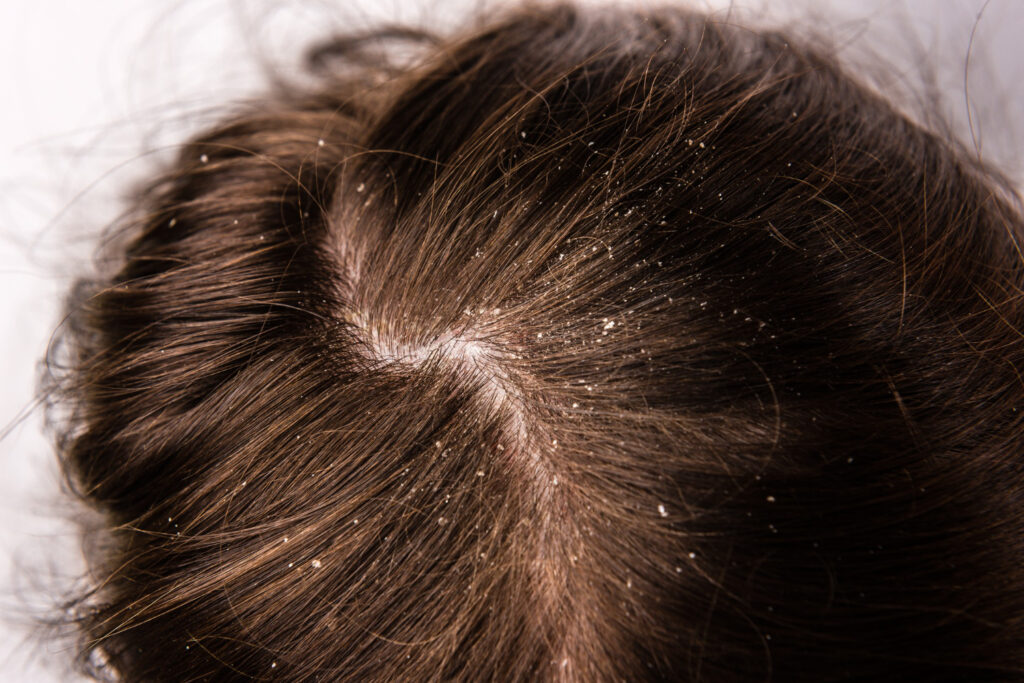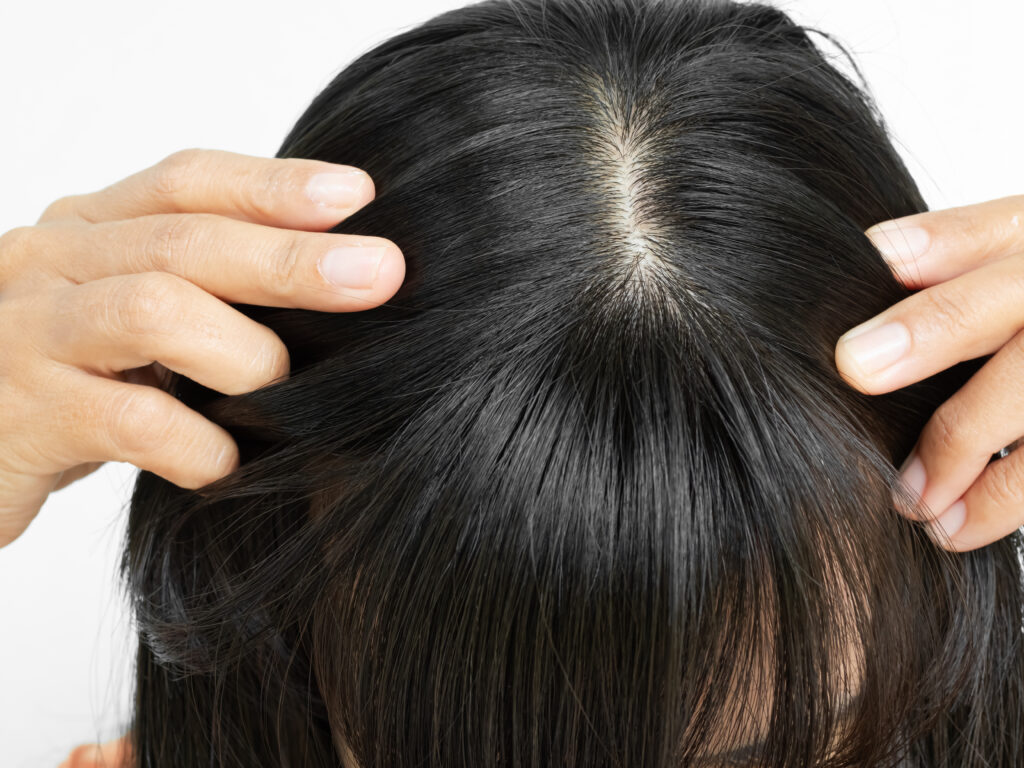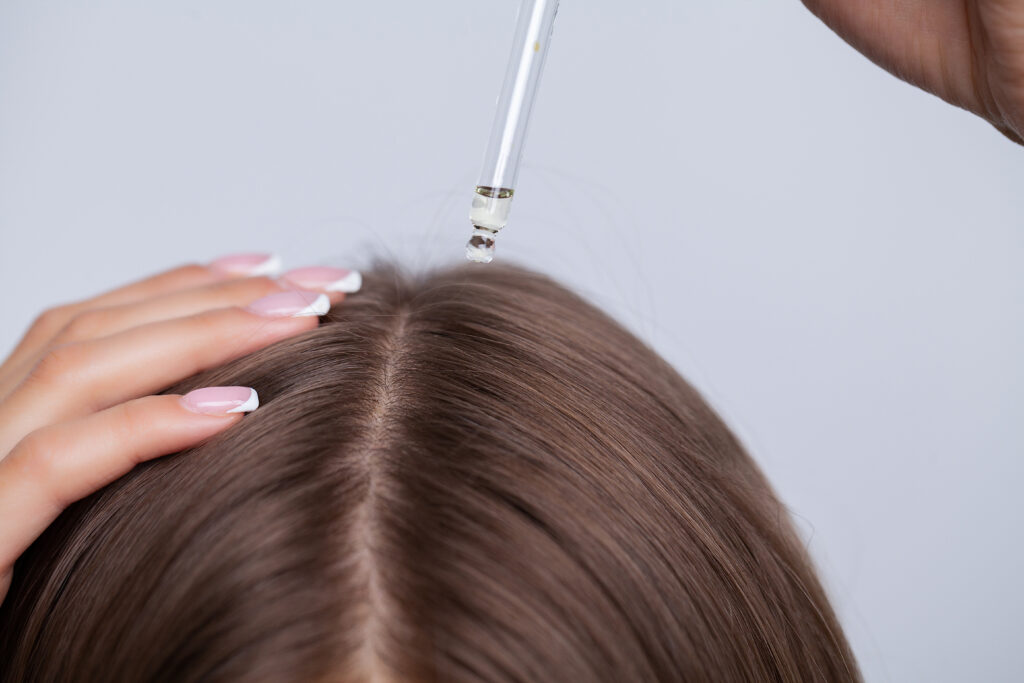“What is your hair care routine?”
This is a question you will frequently come across, especially when watching beauty influencers online. More often than not, the answer of these influencers focuses on the products they use or the salon treatments they undergo. While experimenting with different products and procedures can be fun, one crucial aspect that is often overlooked in these routines is scalp health.
Why is it Important to Have a Healthy Scalp?
One of the first things to consider when planting is the health of the soil. If the soil is unsuitable for planting—whether it is too dry, rocky, or lacks essential nutrients—plants will struggle to grow.
Now, think of the soil as your scalp. If your scalp is too oily, dry, or clogged with dirt or product buildup, growing your hair can be a struggle.
Just as plants need well-maintained soil to thrive, your hair will need a healthy scalp to grow strong and vibrant. Regular scalp care, like proper cleansing and nourishment, creates the ideal environment for healthy hair follicles, allowing your hair to flourish.
The Signs of a Healthy Scalp
One key indicator of a healthy scalp is a balanced microbiome. Each part of your body has its unique ecosystem of bacteria, fungi, and other microorganisms. While this may sound unsettling (disgusting, even), it is essential for your overall health.
Take your scalp, for example. Maintaining the microbial balance supports healthy hair growth and helps protect your scalp from irritation and infections.
Other signs of a healthy scalp include:
- No excess oil or buildup
- No itching
- No pain or discomfort
- Free of redness or inflammation
- No dandruff or flakes
- Clear of pimples, sores, or scabs
- Healthy hair growth with minimal shedding or hair loss
What Causes an Unhealthy Scalp

When the microbiome on your scalp is disrupted, it can lead to various issues, resulting in an unhealthy scalp. Some common causes of this imbalance include:
- Product buildup. Using too much products or not properly cleansing can leave residues that clog pores and disrupt the scalp’s natural balance.
- pH imbalances. A scalp’s natural pH (around 5.5) is crucial for maintaining healthy skin and hair. Hair products that are too acidic or alkaline can disturb this balance, leading to irritation or dryness.
- Over-cleansing or under-cleansing. Washing your scalp too frequently can strip it of natural oils, while not cleansing enough can lead to buildup and clogged follicles.
- Tight hairstyles. Hairstyles that pull on the scalp, such as tight ponytails or braids, can put a strain on the hair follicles, resulting in irritation or even hair loss.
- Diet and dehydration. Poor nutrition or lack of hydration can negatively impact scalp health by depriving it of essential nutrients, causing dryness or inflammation.
- Health issues. Conditions like chronic stress, hormonal changes, or illness can also affect scalp health, leading to problems like dandruff, hair thinning, or irritation.
Different Scalp Types
Your scalp is an extension of the skin on your face, and just as there are different skin types, there are also various scalp types. The main factor that determines your scalp type is the amount of sebum it produces.
Understanding your scalp type is essential for choosing suitable products and maintaining a healthy scalp, which in turn promotes healthy hair growth. Below are the four main types of scalps:
Normal

With a balanced amount of natural oils and an optimal pH level, a normal scalp is often considered the ideal scalp type. While individuals with a normal scalp may occasionally experience minor issues like dandruff or mild itchiness, these are usually easy to manage and do not significantly affect scalp or hair health.
To maintain and care for a normal scalp, it is important to follow a gentle, consistent hair care routine. Use a mild shampoo and conditioner that helps keep the scalp’s natural balance without stripping oils.
Regularly massaging your scalp can also improve circulation and promote healthy hair growth. Avoid over-washing, as this can disrupt the scalp’s natural oils. Lastly, maintain a healthy diet and stay hydrated to further support scalp health, keeping it in its optimal state.
Sensitive
A sensitive scalp is at greater risk of irritation, redness, and discomfort. Those with this scalp type often experience itching and tenderness, and it may react to certain hair products, changes in weather, or harsh chemicals.
If you have a sensitive scalp, it is important to use gentle cleansers and products that support the balance of your scalp’s microbiome. Doctors often recommend oatmeal or clay-based shampoos, as well as using sunscreen and protective coverings like scarves or hats to shield your scalp from the sun.
Avoid heavily scented shampoos or styling products, as they can further irritate your scalp and worsen sensitivity. Choosing mild products can help maintain scalp health and reduce discomfort.
Dry
A dry scalp is often caused by overuse of heating tools or dehydration, but it can also signal more severe scalp conditions like dandruff or psoriasis. When your scalp is dry, it may feel tight, rough, and flaky. Cold weather and harsh shampoos can worsen the dryness, leading to further discomfort.
One of the best solutions to tackle dry scalp is to focus on hydration. Drink more water and incorporate hydrating hair care products into your routine. Some examples of this are shampoos and conditioners with ingredients like glycerine, aloe vera, and hyaluronic acid. These elements are known to help attract and retain moisture.
Oily
Genetics, hormonal imbalances, stress, and diet are some of the main factors that contribute to an oily scalp. Unlike a dry scalp, an oily scalp produces excess sebum, resulting in a greasy appearance and texture.
Oily scalps tend to attract more dirt and buildup, which can make hair look weighed down and unclean. Additionally, those with oily scalps are more likely to experience dandruff and clogged follicles.
The best way to address this is to maintain a consistent cleansing routine with gentle, oil-controlling shampoos that help regulate sebum production without stripping the scalp. Avoid overwashing, as this can trigger more oil production. Scalp treatment products with ingredients like tea tree oil or salicylic acid can also be beneficial in reducing excess oil while keeping the scalp clean.
Tips to Follow for a Healthier Scalp
While everyone has a unique scalp type, there are general routines you can follow to promote a healthy scalp. Here are a few essential tips:
- Get your nutrients. Diet is a key factor in maintaining scalp health and hair growth. The perfect diet should be packed with vitamins and minerals, including biotin, vitamin E, and omega-3 fatty acids.
- Use gentle hair care products. Choose mild, sulphate-free shampoos and conditioners that suit your scalp type. Avoid harsh chemicals that can disrupt the scalp’s natural balance.
- Wash when necessary. Adjust your wash routine based on your scalp type. Oily scalps might need more frequent washing, while dry or normal scalps need less. Pay attention to how your scalp feels—wash when it feels greasy or itchy, and space out washes if it feels tight or dry.
- Shampoo gently. When washing your hair, avoid using your nails to scrub the scalp, as this can irritate the skin. Instead, use your fingertips to softly massage the scalp in circular motions.
- Find the best treatments. Tailor your scalp treatments to your needs, such as using oils, masks, or serums. For hair growth, try serums like Que+ serum to nourish and stimulate the scalp. Other treatments can address issues like dryness, irritation, or excess oil for healthier, stronger hair.
Where to Get the Best Hair Serum in Australia?

Follicle Labs is a Melbourne-based company specialising in hair care serums and scalp health solutions. Our strong commitment to excellence is showcased in our dedication to ensuring that all our products are of top-grade quality.
At Follicle Labs, sustainability and transparency are not just values—they are at the core of everything we do. We prioritise eco-friendly practices in our production process and are dedicated to providing clear, honest information about the ingredients and benefits of our products.
Get to know more about our products by visiting our website at https://www.folliclelabs.com.au/.